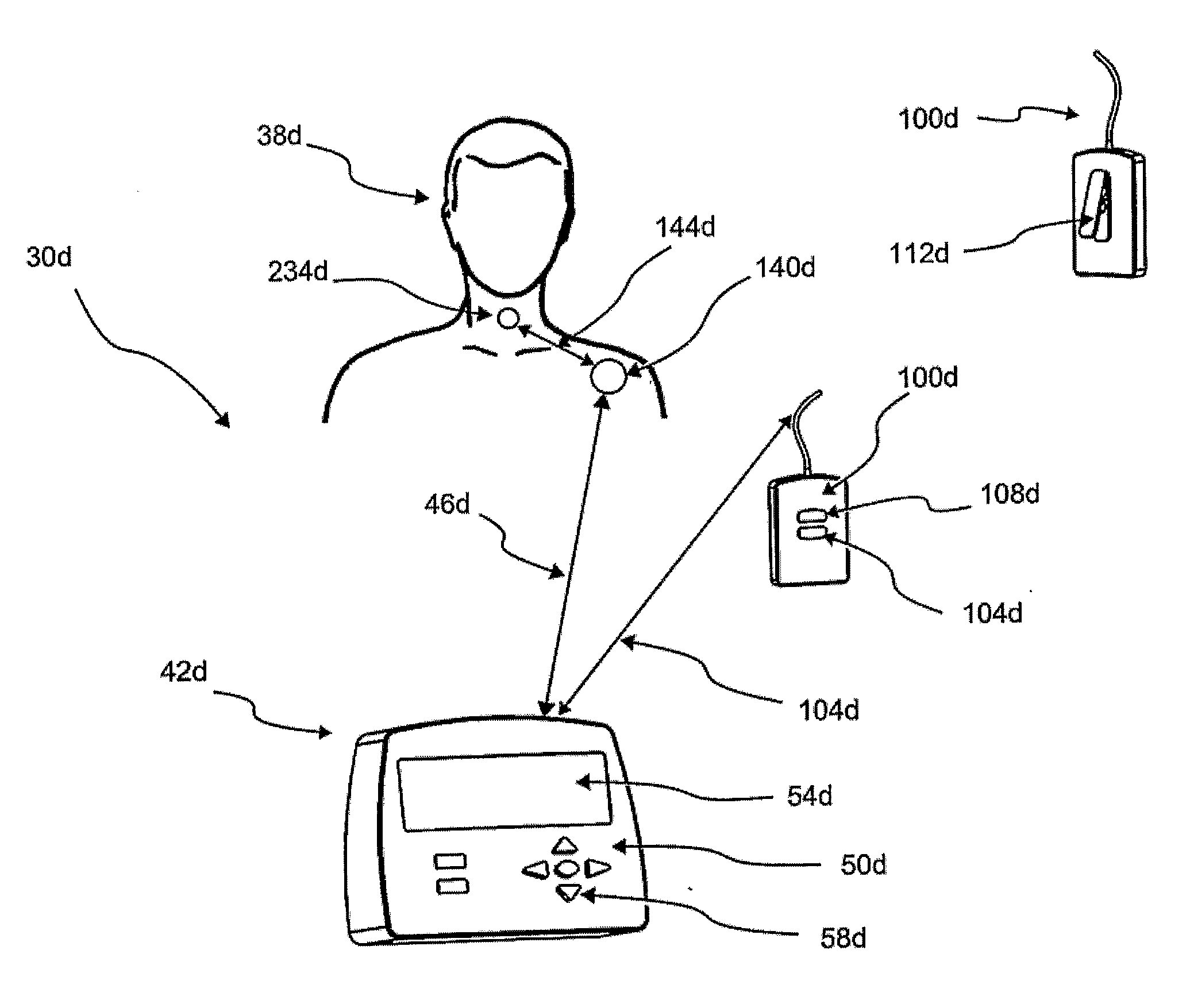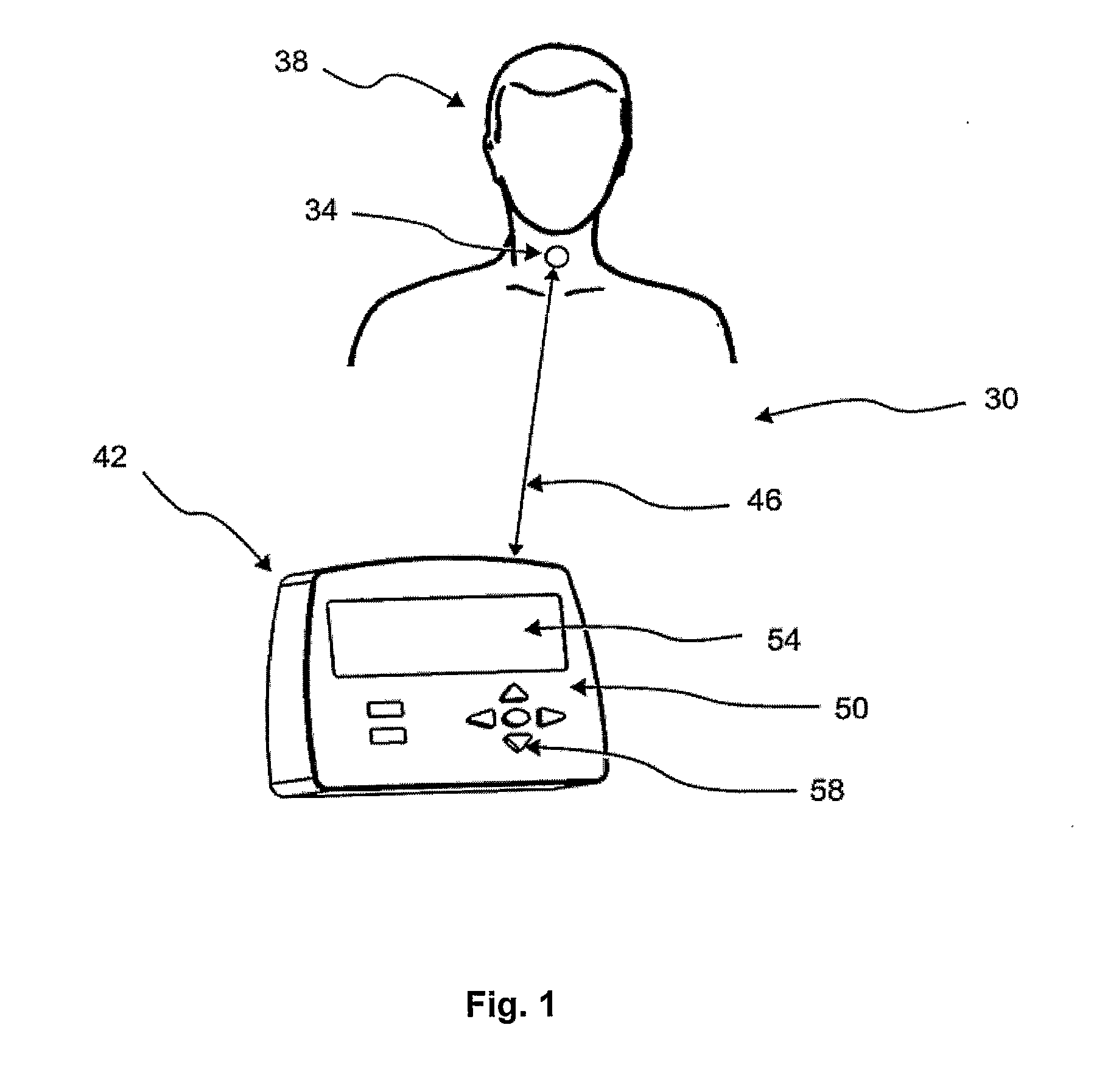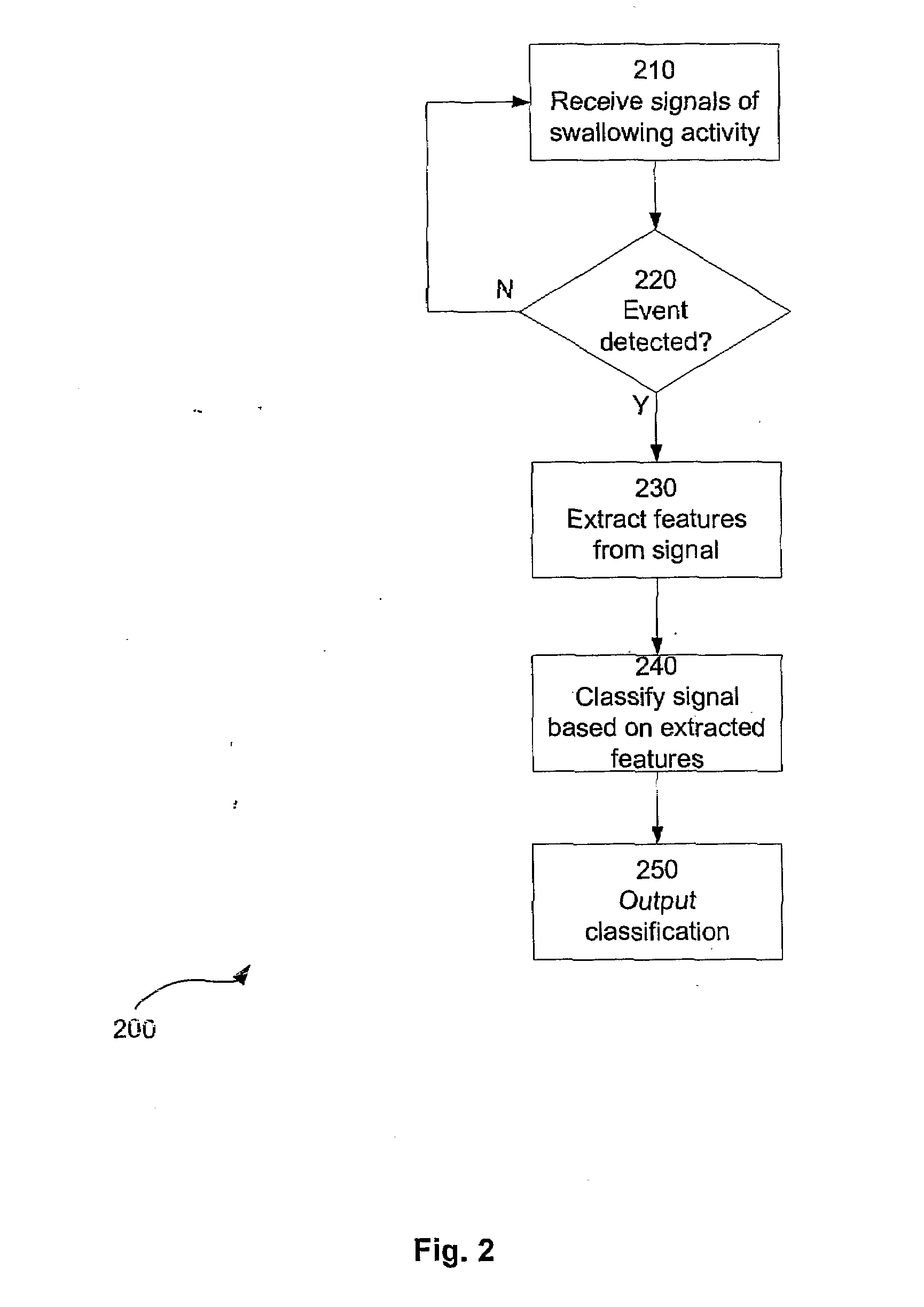System and Method for Detecting Swallowing Activity
a detection system and swallowing technology, applied in the field of aspiration diagnosis, can solve the problems of dysphagia tremendously reducing the quality of life of people of all ages, aspiration bears serious health consequences, and individuals with dysphagia are often at risk of aspiration
- Summary
- Abstract
- Description
- Claims
- Application Information
AI Technical Summary
Benefits of technology
Problems solved by technology
Method used
Image
Examples
Embodiment Construction
[0045]As used herein the terms “swallow” and “penetration” are distinguished from the term “aspiration”. As used herein, a “swallow” is the safe passage of foodstuffs from the oral cavity, through the hypopharynx and into the esophagus. Further, a swallow is accompanied by a period of apnea with no entry of foodstuffs into the protected airway. “Penetration” is the entry of foreign material into the airway but not accompanied by inspiration. However, “aspiration” is the entry of foreign material into the airway during inspiration. As used in relation to the embodiments discussed below, the term “swallowing activity” means a swallow or an aspiration or the absence of either, but in other embodiments “swallowing activity” can refer to other types of activities including penetration.
[0046]Referring now to FIG. 1, a system for detecting swallowing activity is indicated generally at 30. System 30 includes an accelerometer 34 that is positioned on the throat of a patient 38. In a present ...
PUM
 Login to View More
Login to View More Abstract
Description
Claims
Application Information
 Login to View More
Login to View More - R&D
- Intellectual Property
- Life Sciences
- Materials
- Tech Scout
- Unparalleled Data Quality
- Higher Quality Content
- 60% Fewer Hallucinations
Browse by: Latest US Patents, China's latest patents, Technical Efficacy Thesaurus, Application Domain, Technology Topic, Popular Technical Reports.
© 2025 PatSnap. All rights reserved.Legal|Privacy policy|Modern Slavery Act Transparency Statement|Sitemap|About US| Contact US: help@patsnap.com



